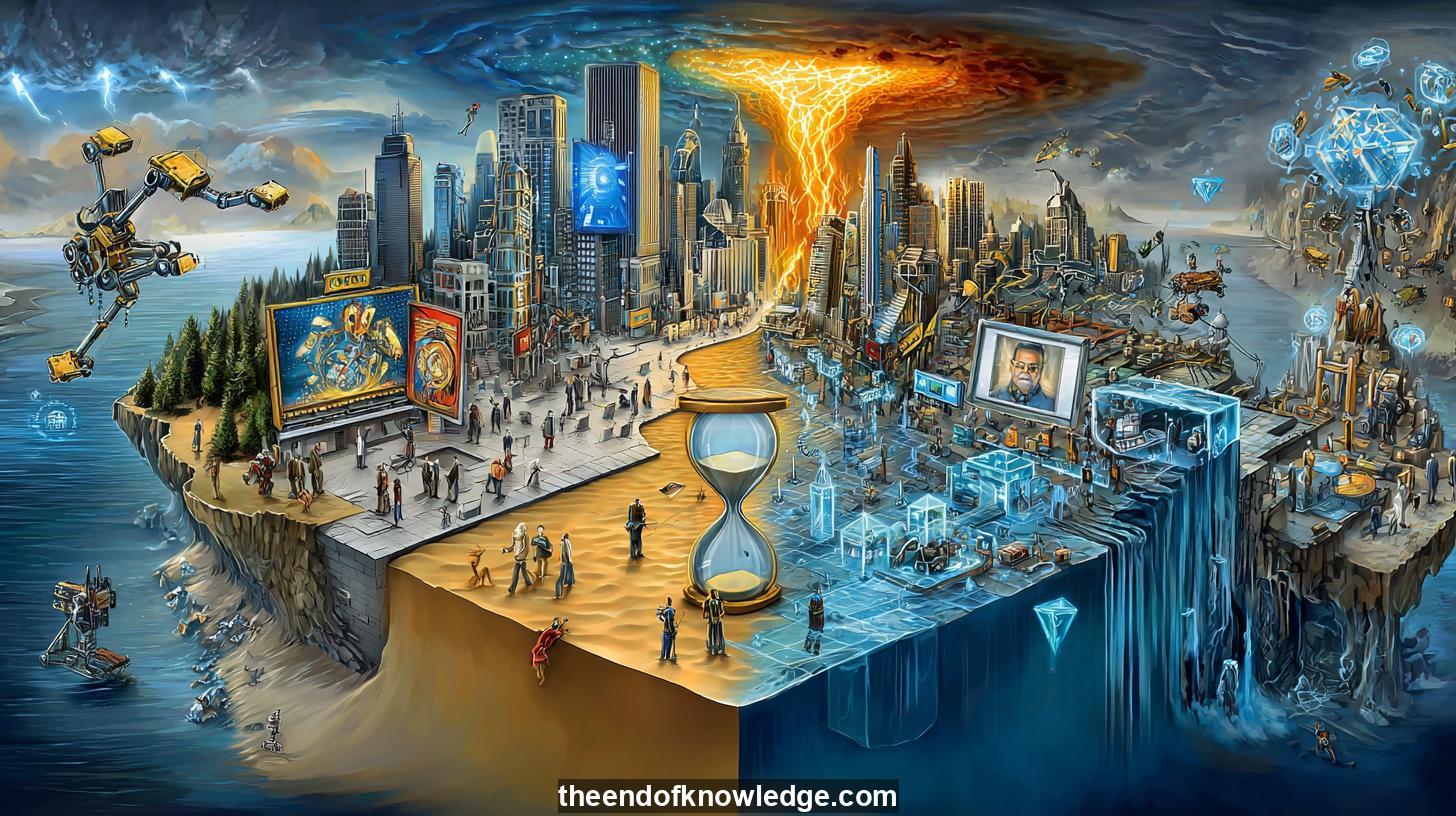 >
>
Concept Graph, Resume & KeyIdeas using Moonshot Kimi K2 :
Resume:
Plácido Domenech hosts David Macías, CEO of AIOS Center, to discuss how generative AI is upending business, labour and society. Recapping Microsoft Build 2025 and Google I/O, they note the shift from copilots to autonomous agents that can delegate work, write code, design marketing campaigns and even negotiate contracts in seconds. Macías illustrates this with real examples: a real-estate Arras contract that once took eight hours is now produced in five seconds, and marketing departments that needed fifteen people now run on two. The conversation moves from excitement to unease, acknowledging that the pace of change outstrips human adaptation and that entire professions—programming, design, accounting, customer support—are evaporating faster than retraining can replace them.30 Key Ideas:
1.- Microsoft Build 2025 showcased autonomous agents delegating complex tasks across enterprises.
2.- Google I/O paralleled the vision, emphasising agentic ecosystems and open protocols.
3.- Real-estate contracts reduced from eight hours to five seconds via AI agent orchestration.
4.- Marketing departments shrink from fifteen employees to two while maintaining output quality.
5.- OpenAI’s early report predicted universal basic income necessity, now downplayed by vendors.
6.- Cognitive dissonance termed “glitch” prevents humans grasping exponential AI advances.
7.- Chess evolution illustrates how digital tools outpace traditional human learning curves.
8.- Startup Videolink automated article-to-video pipelines, foreshadowing today’s content agents.
9.- EOS organisational frameworks require AI augmentation to remain relevant amid acceleration.
10.- Remote-first agencies pioneered asynchronous workflows now augmented by agentic scheduling.
11.- Prompt engineering skills risk obsolescence as agents self-optimise their instructions.
12.- Micro-transaction economies will reward agents per task via blockchain settlement layers.
13.- Robotics integration lags in Europe due to regulation but thrives in China’s daily life.
14.- Programming languages may disappear as natural language replaces code syntax entirely.
15.- Designers pivot from static pages to dynamic conversational interfaces generated on demand.
16.- SaaS subscriptions yield to usage-based agent marketplaces with tiered capability pricing.
17.- Industrial margins compress when competitors leverage AI to underbid traditional processes.
18.- Employee retraining fails when 57-year-old workers confront irreversible skill redundancy.
19.- Psychological support chatbots already substitute human therapists for routine counselling.
20.- Children in China prompt AI projects at age six, highlighting educational policy gaps elsewhere.
21.- Hyper-personalised storytelling becomes product differentiator beyond mere utility.
22.- Agent wallets will autonomously negotiate cloud resources and pay other agents for services.
23.- Legacy ERP and CRM systems face extinction under seamless agent-driven integrations.
24.- Parallel task execution raises burnout risk unless labour contracts shift to outcome-based pay.
25.- Digital natives will fluidly switch roles, rendering single-discipline careers obsolete.
26.- Quantum computing advances may soon yield unimaginable AI capabilities beyond current models.
27.- National competitiveness hinges on citizen-level AI adoption rather than state programmes.
28.- DAOs combined with AI governance could enable fairer resource distribution post-automation.
29.- Physical embodiment of AI via robotics promises complete value-chain automation.
30.- The final human niche shifts to defining purpose while agents handle execution.
Interviews by Plácido Doménech Espí & Guests - Knowledge Vault built byDavid Vivancos 2025